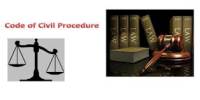Law of Tort
Negligence:
Negligence is the breach of a legal duty to take care which results in damage, undesired by the defendant to the plaintiff. In the modern law of tort the word negligence has two meanings;
1. It indicates the state of mind of a party in doing an act.
2. It means a conduct which law deems wrongful.
Negligence is a breach of a legal duty to take care. Negligence is a type of legal fault as it sets an objective standard to which person behavior must conform
Definition given by eminent jurists:
Prof. Salmond: He considers negligence as a state of mind which was an element for liability for torts.
Winfield: “Negligence as a tort is the breach of a legal duty to take care which results in damage, undesired by the defendant to the plaintiff.”
Blyth vs. Birmingham Waterworks Co. (1856) IIEX 781
Negligence is the breach of a duty caused by the omission to do something which a reasonable man guide by those consideration which ordinarily regulate the conduct of human affairs would do or doing something which a reasonable man not do.
Carelessness:
The law takes cognizance of carelessness. It concerns itself with carelessness only where there is a duty to take care and where failure in that duty has caused damage. In such circumstances carelessness assume the legal quality of negligence. Cricket ball case:
Bolton vs. Stone (1951) AC 850
Stone injured by a cricket ball while standing on the highway.
Essentials of negligence:
- Duty to take care.
- Absence of due care
- Actual damage.
1. Duty to take care:
There is no negligence unless there is in the particular case a duty to take care.
Donough vs. Stevenson (1932) AC 562
The law takes no cognizance of carelessness in the abstract. It concerns itself only when there is a duty to take care and where failure to that duty has caused damage.
a) The duty must be towards the plaintiff.
Thomas vs Quartermaine (1887) 18 QBD 695
“The dute to take care is not in the air, but towards particular people.”
b) The duty must be in respect of the particular conduct complained of the duty to take care is not universal.
Hedley Byrne & co vs. Heller (1963) 2 All E.R
The decision of Lords include the following preparation
- Negligence may arise not only form the doing or the omission to do an act but also forms a statement; even there is no contract nor any fraud involved.
- But such duty to take care in making a statement would arise only where there is a special relationship between the parties which gives rise to such responsibility. Banker and Customer.
- Even where there is such special relationship any responsibility for the statement may be avoided by disclaimer that.
- Exempt for liability. Judges, Arbitrator etc.
2. Absence of due Care:
Whether the defendants conduct amounts to a breach of duty to take care has to be decided according to the facts of each case.
Standard of due care is same in all cases: The standard of an ordinarily carful man highest degree of care which human nature is capable of.
Donoghue V Stevenson (1932) AC 562
You must take reasonable care to avoid acts or omission which you can reasonably foresee would be likely to injure your neighbor.
Fardon V. Harcourt Riving to (1932) 146 LT
Defendant parked his car by the road side leaving his dog inside. The dog jumped about and broke the glass of one of the windows plaintiff. Held defendant was not liable because the injury was due to a bare possibility which could not have been reasonably foreseen.
“People must guard against reasonable possibilities but they are not bound to guard against fantastic possibilities”.
Standard of care for negligence:
Stander as a reasonable person. Keeping an umbrella and keeping a loaded gun in the hand. The stander of care must be different. Same care is not to be taken by a reasonable man.
Different responsibility:
- In case of a deaf and dumb man.
- In case of blind man, black glass, white stick.
3. Actual Damage:
It is not enough for the plaintiff to prove that the defendant’s conduct has been negligent; he must also prove that actual damage has resulted to him in consequences.
Plaintiff must further prove that the negligent act of the defendant is the direct and proximate cause of the damage.
Contributory negligence:
The term negligence means the breach of duty to another but contributory negligence is also failure to take reasonable care of ones own self.
Lord Denning:
“Negligence depends on a branch of duty where as contributory negligence does not. Negligence is a man’s carelessness in breach of duty to others Contributory negligence is looking after his own safety”.
“In pair delicto patio rest condition defendants”
Which means “When both parties are equally to blame, neither can hold the other liable. “
Butterfly V Forrester (1809) 11 East 60: pull in a road, sufficient light, and Driver heat the pull.
The plaintiff is guilty of contributory negligence if the ought reasonably to have foreseen that if he did not act as a reasonable prudent man, he might be hurt himself.
Common Law – defence for plaintiff.
*Car-Collation with a cycle.
In every case the commonsense test is to be applied…. Where negligence has been the effective cause of the accident which has resulted in the damage claimed.
Contributory negligence of children. “The age and mental development of the child becomes relevant”.
*Res Ipsa Loquitur (The thing it self speaks)
*The consequence says its own
Gee V metropolitan Railway (1873) R8QB 161.
Traditionally the common law did not impose liability for negligence. There are few offence where negligence is the basis of liability.
Example: it is an offence to drive a motor vehicle on a road without due care and attention or without reasonable consideration for other persons using the road (careless driving).
Proving liability for negligence:
Existence of a circumstance is sometime sufficient to establish liability for negligence. Objective test that means dose the reasonable man share any of the accuser’s characteristics?
More Lectures:
















